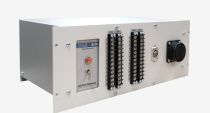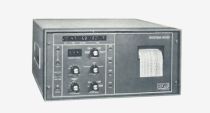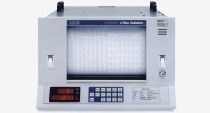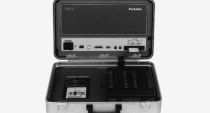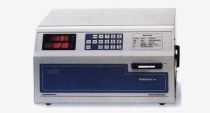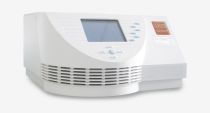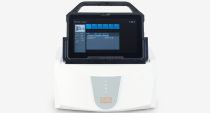In today's blog post, we would like to take you on a journey through time to the origins of Kaye and the company's early steps in the field of validating thermal processes in the pharmaceutical and biotechnological industry.
Before we dive in, it may be helpful to understand a little more about our company's founder, as his work and principles still inform Kaye's values today. Dr. Joseph Kaye was a Professor of Thermodynamics and Mechanical Engineering at MIT in Boston. He held several foundational patents in precise temperature measurement and had already established a good reputation in professional circles for high-precision temperature measurement as early as the 1950s.
Dr. Kaye's foundational research on topics, such as power generation from heat, thermodynamic properties of gases, and heat transfer, led to the invention of the so-called thermoelectron engine, a device that directly converts heat into electricity. His work at MIT also covered areas, such as fluid dynamics, thermodynamics, heat transfer, the influence of sound on heat transfer, and the combined effects of heat transfer, mass transfer, and chemical reactions. In collaboration with other authors, he published two significant books - "The Thermodynamic Properties of Air" (1945) and "Gas Tables" (1948). The latter book was widely used in the design of turbine and jet engine units. He was also a co-author of the book "Direct Conversion of Heat into Electricity", which was published in 1960.
What particularly fascinated him were the possibilities of achieving fast and yet highly accurate temperature measurements using a variety of thermocouples combined with a measurement and data collection system. Thus, a measurement system originally designed for cold junction compensation - the so-called Kaye Ice Point Reference - evolved into the world's first commercially available multi-channel recorder using thermocouples as measuring sensors - the Kaye System 8000.
The newly created ability to perform fast, reproducible, and highly accurate temperature measurements over a very wide temperature range using the same thermocouple sensor has been implemented in nearly all industrial applications. Therefore, Kaye data loggers can be found in the aircraft industry, electrical and head power stations, gas turbines development, in the steel industry at blast furnaces or in nuclear power plants.
In the early 1970s, the Septicemia Outbreak, caused by improper sterilization of Small and Large Volume Parenteral (SVP/LVP), prompted the pharmaceutical industry to reevaluate the existing rules for sterile manufacturing and control of sterility. Kaye was at the forefront in providing appropriate measurement and calibration systems. These enabled precise and rapid monitoring and validation of sterilization temperatures during the autoclaving of pharmaceutical products. Thus, the concept of validating a thermal process was born.
From the multi-channel recorder Kaye 8000, which can be used for general temperature measurements, a whole range of different Kaye validation systems developed over the next several generations - always in connection with the necessary peripheral systems for calibrating and adjusting thermocouples.
The wired measuring systems from Kaye, based on thermocouples as measuring sensors, quickly established themselves as a worldwide recognized solution, accepted by regulatory authorities, in the pharmaceutical and biotechnological industry.
Starting in 1972, with the launch of Kaye's first data recorder termed Validator - Kaye Validator Digistrip I, the subsequent product generations Kaye Validator Digistrip II, III, IV, Kaye Portable Validator KL, and Kaye Validator 2000 up to the current Kaye Validator AVS - demonstrate the continuous adaptation of the foundations developed in the 1960s to the ever-increasing requirements of the industry in terms of precision, transparency of measurement data, and number of required measurement points. This applies equally to the validation of a steam autoclave, a hot air tunnel, a freeze dryer, a heating cabinet, or an incubator.
Thanks to its dynamic and market-oriented product development, Kaye has consistently set standards and had a significant influence on what we today refer to as thermal process validation. Starting with a relay-programmable multi-channel recorder, the Kaye System 8000, followed by the MS-DOS® operable product family Kaye Digistrip/ Portable/ KL, to Microsoft Windows® based solutions like the Kaye Validator 2000, all the way to the complex yet user-friendly product family Kaye Validator AVS. Kaye's validators, in combination with the automated calibration and adjustment of connected sensors using a traceable temperature standard and high-precision liquid bath or block calibrators, are considered the gold standard in thermal process validation in the pharmaceutical and biotechnology sectors.
To enquire about a product or service, you can reach out to us online and one of our representatives will be happy to assist you! To contact us, please visit us here: https://www.kayeinstruments.com/en/contact
To request a demo of any of our products, please visit our demo request website here: https://www.kayeinstruments.com/en/demo
Follow us on LinkedIn or register for our newsletter: https://www.kayeinstruments.com/en/newsletter-subscription
Copyright: Amphenol Corporation



